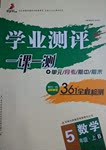题目内容
【题目】The baby is just one day old and has not yet left hospital. She is quiet but alert (警觉). Twenty centimeters from her face researchers have placed a white card with two black spots on it. She stares at it carefully. A researcher removes the card and replaces it by another, this time with the spots differently spaced. As the cards change from one to the other, her gaze(凝视) starts to lose its focus — until a third, with three black spots, is presented. Her gaze returns: she looks at it for twice as long as she did at the previous card. Can she tell that the number two is different from three, just 24 hours after coming into the world?
Or do newborns simply prefer more to fewer? The same experiment, but with three spots shown before two, shows the same return of interest when the number of spots changes. Perhaps it is just the newness? When slightly older babies were shown cards with pictures of objects (a comb, a key, an orange and so on), changing the number of objects had an effect separate from changing the objects themselves. Could it be the pattern that two things make, as opposed to three? No again. Babies paid more attention to squares moving randomly on a screen when their number changed from two to three, or three to two. The effect even crosses between senses. Babies who were repeatedly shown two spots became more excited when they then heard three drumbeats than when they heard just two; likewise (同样地) when the researchers started with drumbeats and moved to spots.
【1】The experiment described in Paragraph 1 is related to the baby’s__.
A. sense of hearing B. sense of sight
C. sense of touch D. sense of smell
【2】Babies are sensitive to the change in______.
A. the size of cards B. the colour of pictures
C. the shape of patterns D. the number of objects
【3】Why did the researchers test the babies with drumbeats?
A. To reduce the difficulty of the experiment.
B. To see how babies recognize sounds.
C. To carry their experiment further.
D. To keep the babies’ interest.
【4】Where does this text probably come from?
A. Science fiction. B. Children’s literature.
C. An advertisement. D. A science report.
【答案】
【1】B
【2】D
【3】C
【4】D
【解析】
试题分析: 本文对刚出生一天的婴儿做实验,通过变化纸上的黑点及鼓的敲打次数对婴儿的视觉、听觉进行的一个实验。
【1】B 考查细节理解题。根据文章第一段文中的She stares it carefully. Her gaze starts to lose its focus.可知,本段是对孩子的视觉实验,故选B项。
【2】D考查细节理解题。根据第一段中的As the cards change from one to the other,her gaze(凝视)starts to lose its focus—until a third,with three black spots,is presented.Her gaze returns...可知,随着卡片上黑点数量的变化,婴儿的注视也发生变化,表明了婴儿对于数量的变化比较敏感,故选D项。
【3】C考查细节理解题。第二段中研究人员先是通过卡片上的黑点来测验婴儿对于数量的变化的敏感程度;根据第二段中的The effect even crosses between senses...three drumbeats than when they heard just two;likewise(同样地)when the researchers started with drumbeats and moved to spots.可知,研究人员又做了击鼓的实验,这样做的目的是更加深入地研究婴儿对于数量变化的敏感程度,故选C
【4】D 考查推理判断题。本文提到了experiment和researchers等,可知是一些研究人员做了一个实验,来检验婴儿们对于数量的变化是不是敏感,所以本文属于一个科学研究报告,因此选D

 活力课时同步练习册系列答案
活力课时同步练习册系列答案 学业测评一课一测系列答案
学业测评一课一测系列答案